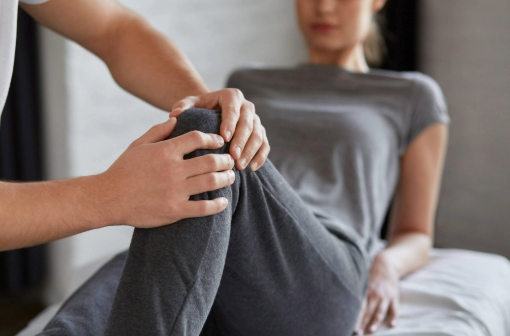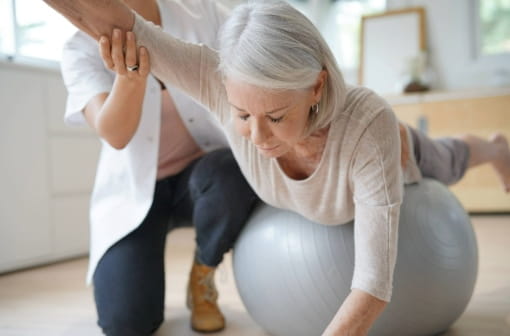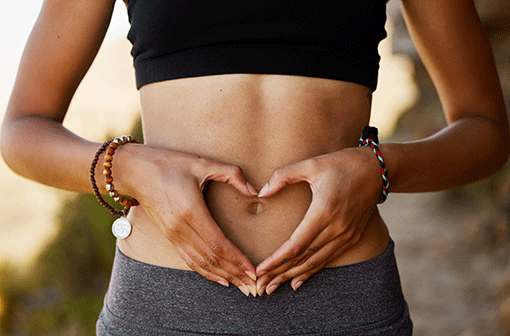“There’s so much we can do early on to establish good habits for later life, but it’s never too late to start.”—Dr Fiona Jane, Specialist Women’s GP, Jean Hailes for Women’s Health
Key points
- Good habits are the key the better health in the future.
- Regular check-ups and screening as we age helps us stay on top of risk factors and health conditions.
- Being proactive about the changes that your body will undergo as you age means getting reliable, evidence-backed information from credible sources.
Staying on top of your health means doing different things in different decades, but the basic formula is not all that complicated. Here are some expert-backed tips for simple things we can do in our 30s, 40s and 50s to feel better for longer.

Build a strong foundation of healthy habits
Young or old, Dr Fiona Jane, Specialist Women’s Health GP at Jean Hailes for Women’s Health, gives all her patients the same simple advice for better health and real wellbeing:
- Move more.
- Eat less, and focus mostly on plants.
- Try to get adequate sleep (“It’s so important for good health,” she stresses).
- Connect with family, friends and your community.
- Find a reason to get out of bed by engaging in stimulating work, education or leisure activities.
- Learn ways to manage stress.
- Reduce risky behaviour, like smoking, drug use and excessive alcohol consumption.
“This formula is for the 30-year-old as much as it is for the 50-year-old,” says Fiona. “There’s so much we can do early on to establish good habits for later life, but it’s never too late to start.”
If you’d like to make changes in any of these areas, Fiona suggests setting SMART goals with your GP. You could also seek specialist advice and guidance from an allied health practitioner, like a nutritionist, exercise physiologist or psychologist.
Enjoy the flow-on effects
As an Accredited Practising Dietitian and Health Coach for HealthierMe™, a program run by Australian Unity’s partner Remedy Healthcare, Alexandra Warhurst recommends only trying to change one habit at a time. But you can take heart knowing that working on one area of wellbeing will have cumulative benefits that flow into other domains.
“If you're tired, the decision-making part of your brain is not functioning as well as it should,” explains Alexandra. “So that means work becomes more difficult, but so does the decision to exercise or to eat well. And then you might be prone to go for high-sugar foods because you're looking for an energy hit.”
She is also quick to emphasise the holistic benefits of healthy sleep routines, mindful alcohol consumption, and prioritising daily stress-management and self-care activities, such as reading a book or going for a walk.

Find a GP you trust
All our experts agree that one of the key components of better long-term health is forming a good relationship with a GP you trust.
“Find a GP who you feel comfortable with, and allow them to really get to know you,” advises Fiona. “Your health-management plan has simply got to be individualised, depending on your individual and family history of illness and genetic risk, as well as work exposure, cultural or ethnicity factors, and just the fact of getting older.”
Stay proactive and start screening regularly
With a good GP at the centre of your care team and a solid foundation of healthy habits, the secret to optimising your long-term wellbeing then really just boils down to “being proactive” as you age, says Amy Mullins, Health Coach for HealthierMe™. For her, that means “having regular check-ups with your GP for blood tests at least every six months.”
Blood tests aren’t the only type of screening you need to stay on top of your long-term health. While the exact screenings will depend on your individual circumstances, Amy says some of the checks that you may want get regularly in your 30s (and beyond) include:
- cervical screening
- dental check-ups
- eye checks
- skin cancer checks
In your 40s, consider starting to get your cholesterol, blood pressure, and risk of heart disease and diabetes assessed.
“Mammograms and bowel cancer screening happen in your 50s,” says Amy, “and perhaps having a bone density scan if you're a bit older to look at your bone health as well.”

Make informed choices
Doctor Google and well-meaning friends and family can all influence what we think we should do about our health, but our experts all agree on the importance of getting information from trustworthy and reliable sources. These include accredited government websites such as the Better Health Channel, rather than social media influencers.
Being well-educated about our bodies and the changes they undergo as we age allows us to make informed choices regarding our current and future health, says Fiona.
For example, she recommends women “find out about the hormonal changes that occur in mid-life, and seek help for the bothersome symptoms. But also find out the long-term effects of these hormonal changes on your heart, brain, bones and metabolism, and start to set up health strategies and goals to maintain that wellbeing.”
Take any small steps you can today
So that’s the not-so secret formula in a nutshell: a good foundation of healthy habits, regular screenings and check-ups, and staying proactive based on reliable, evidence-backed information.
There’s nothing too complicated about it, and there’s no time like the present to start making even small changes for the better. Your future self is going to thank you.
Disclaimer:
Information provided in this article is not medical advice and you should consult with your healthcare practitioner. Australian Unity accepts no responsibility for the accuracy of any of the opinions, advice, representations or information contained in this publication. Readers should rely on their own advice and enquiries in making decisions affecting their own health, wellbeing or interest.


